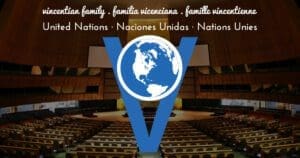IGH staff had the privilege of attending and presenting at the CISCAL “Situation de Calle en América Latina” conference in Mexico City in October. We heard research and presentations from government, academic, and NGO representatives on a variety of topics. Strong themes came through several of the presentations and one that stood out to me most was that political will is required to make public policy changes. Specific policy changes proposed for people experiencing homelessness were:
- making it easier to obtain ID and documentation
- increasing safety and decreasing violence on the streets from police and citizens
- expanding access to housing and services
Although the presentations and calls for public policy were given within the context of homelessness in Latin America, we have heard similar themes and specific ring throughout the global work of IGH. To be sure, there is local and regional nuance to homelessness that requires us to abandon a “one size fits all” approach to homelessness. However the core issues of homelessness – poverty and inequality, rising housing costs, discrimination and exclusion, mental and physical health disabilities, etc. – are similar across the globe. These issues can be addressed through a mix of public policy and targeted programs and services.
In the context of the Vincentian Family, we often talk about systemic change, i.e., changing existing systems so that all people can have access to housing, health, education, employment, etc. Public policy change is an integral component of systemic change. The themes explored by the presenters at the CISCAL conference and expressed by others in the IGH network can and should form the basis of our common advocacy for systemic change. As one of the presenters at the CISCAL conference noted, Mexican sociologist … once said “truth and knowledge should be used in pursuit of social justice.” This belief is at the core of IGH’s work – to learn every day what works (and doesn’t) to end homelessness and to apply that knowledge to change systems and create a better world for all those at risk of or experiencing homelessness.
Together we should be advocating at local, national and international levels for people who are homeless to have easier access to IDs, to be protected from violence by police and citizens, and for access to housing and services to be expanded. If you are interested in joining in on our common advocacy for homelessness, please sign up for the NGO Working Group to End Homelessness online at: https://www.wgehomelessness.org/
Lydia Stazen, Executive Director Ruff Institute of Global Homelessness, a joint initiative of Depaul International and DePaul University








0 Comments